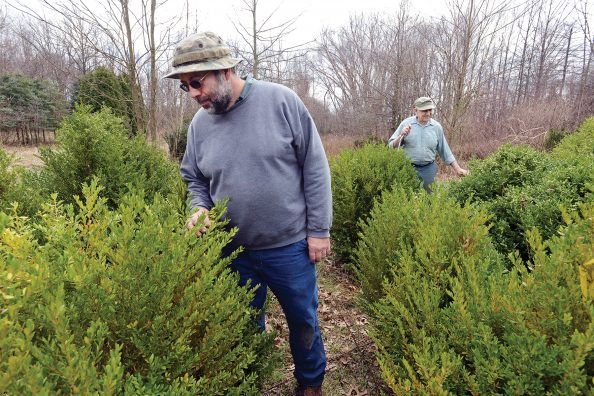Applications for Ohio Farm Bureau Health Plans now available
Members have three ways to apply: contacting a certified agent, calling 833-468-4280 or visiting ohiofarmbureauhealthplans.org.
Read MoreThe Ohio State University horticultural instructor in the mid-1960s was stumped. How in the world was his legally blind student able to tell the difference between American cranberry bush and European cranberry bush? Most of his students struggled to tell the difference and their eyesight was perfectly fine. Student Floyd Poruban’s response? One of the plant’s buds was sticky and the other’s smooth. The irony wasn’t lost on the instructor; a student who had lost almost all his eyesight had made a key observation—one never recorded as far as he could tell from extensive research. Floyd’s observation was later added to Ohio State’s plant identification guide.
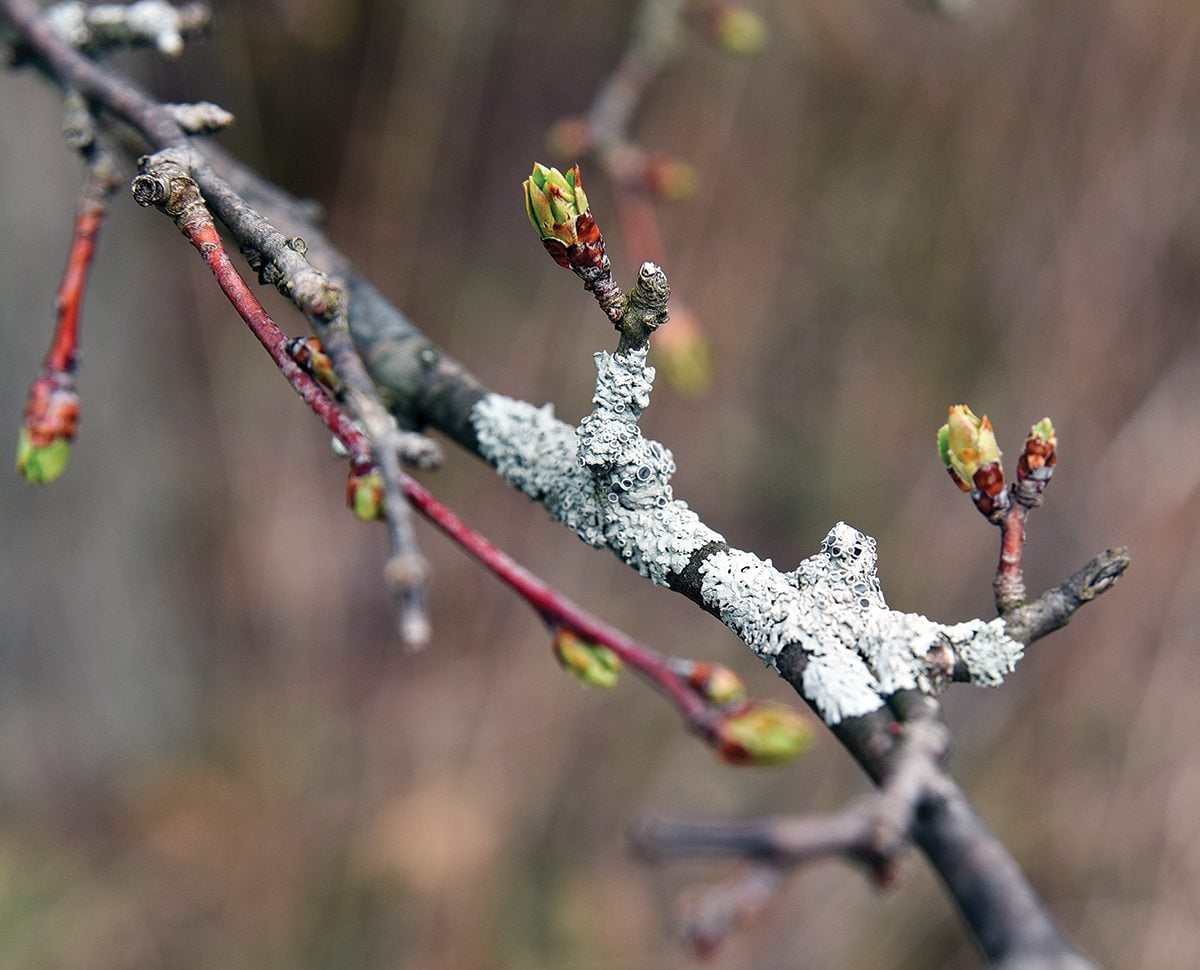
Ever since Floyd, a Lorain County Farm Bureau member, was a boy, he’s had a knack for observing or figuring out what others couldn’t. His master’s degree research on nursery plants suffering from crown gall, a bacterial disease, resulted in the discovery of plasmids, a widely used tool in early cancer research. During college, he helped a family friend figure out how to landscape properties he was developing.
“So a blind man started a landscaping business,” Floyd laughed.
Obtaining a horticultural degree required students to accurately identify and work with more than 1,000 plants. Floyd took to the task so naturally that his Ohio State classmates asked to study with him. The students would read the material out loud and Poruban would explain what they were learning, saving him hours of pouring over texts with a magnifying glass that his high school biology teacher gave him.
“Listen and learn” was the philosophy of a man who at age 4 had lost over 90 percent of his eyesight due to optic atrophy and persevered to not only be admitted to Ohio State’s science program but graduate with both a bachelor’s degree in horticulture in 1961 and a master’s in plant pathology in 1964. For more than 50 years, he’s been in the nursery business, growing rhododendrons, azaleas, boxwood and other shrubs and bushes at Poruban Nursery in Avon. Over the years, the nursery’s plants have decorated the landscapes of Graceland in Memphis, the National Cathedral in Washington, D.C. and Severance Hall in Cleveland.
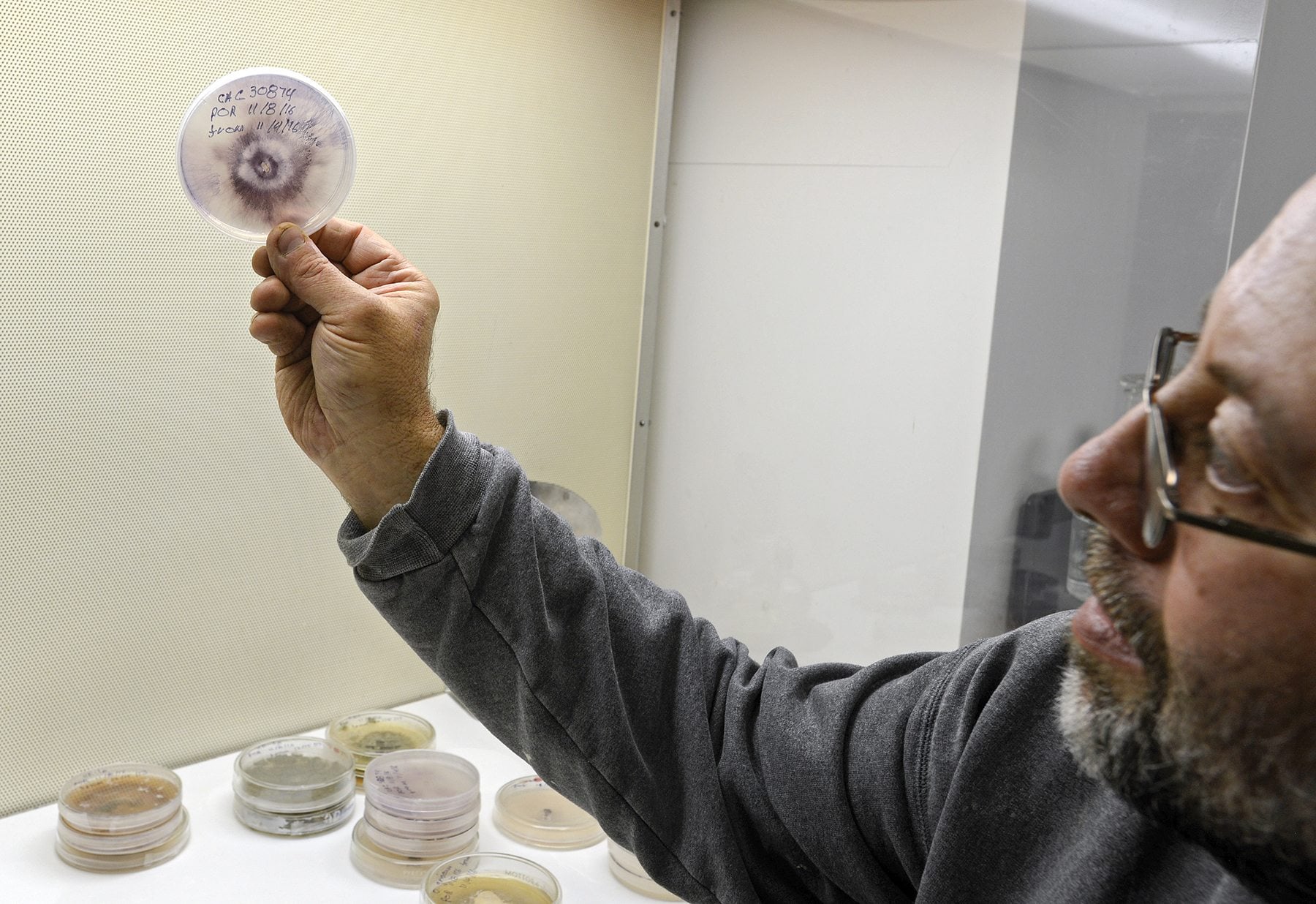
Floyd’s interest in plants started growing shortly after the family moved from the “heart of the dredge” of heavily industrial Lorain to rural Avon in 1945. Doctors at the Cleveland Clinic had recommended his parents move to the country, saying fresh air, exercise and sunshine would help their son. On the 1½ acre homestead, 7-year-old Floyd learned how to plan and maintain a garden as well as take care of the cows, horses and pigs. His father, a factory machinist, had a passion for peonies, and Floyd pruned and transplanted the plants. During his junior and senior years of high school, he helped fold 1,000 baskets a week at a large tomato greenhouse. Those experiences came to mind when he was asked what he wanted to study in college. The Rehabilitative Services of Ohio helped Poruban get admitted to Ohio State University and helped him pick a major.
“They said to go where your passions are and I went to the horticulture department and they said they were focusing on ornamental plants, trees and shrubs and that there was an opening so I started learning horticulture,” he said.
It was at Ohio State that Floyd met Ann, a nursing student, at a dance and they married the week after Floyd earned his master’s degree. The two moved to Avon, just down the road from where Floyd grew up, and applied for a loan through the Farmers Home Administration to purchase land and start a greenhouse.
“The agent came out and said ‘I’m sorry, you’re blind. We can’t loan you money,” Floyd said. In anger and frustration he asked why his disability should make a difference. The agent left in a huff and came back later to say he had gotten the loan.
The couple built a house, service building and small greenhouse on the overgrown land, which was previously a potato farm. Establishing a nursery of woody plants and shrubs takes years, and Floyd would sell propagations of plants to other nurseries to help pay the bills. Whatever wasn’t sold was planted in his fields to establish his nursery.
“People in class with me (at Ohio State) had started their own businesses, and they asked me to take cuttings of their plants, reroot them and sell them back to them. That’s basically how we got started,” he said.
Floyd’s passion for horticulture was passed down to his son, Rich, who grew up in the nursery and went on to earn bachelor’s and master’s degrees in horticulture from Ohio State University. The two treat about half of their 24 acres as a living laboratory, searching for ways to boost the performance of their plants, which are mainly sold word-of-mouth to other nurseries or to estates looking for very large plants and shrubs that can take decades to grow.
For several years, father and son have been studying mycorrhizae, the symbiotic relationship that forms between fungi and plants. This relationship gives plants access to nutrients in the soil and protects them from disease and toxins. In order to cut back on labor costs, Poruban Nursery has taken an organic type of approach to growing and has reduced its fertilizer use by about 90 percent.
As Floyd and Rich continue to study sustainable agricultural practices on their property, they’re eager to share their findings with customers.
“We can explain why a lot of things are the way they are, and we spend a lot of time educating our customers,” Rich said. “This is my living lab. As long as I breathe, it’s going to be some sort of living laboratory.”
What is Ohio AgrAbility?
The Ohio AgrAbility Program assists those involved in agriculture who have a disability. Ohio State University and Easter Seals run the program, which is part of a national program from the U.S. Department of Agriculture. The goal is to provide individuals and families with education, resources and technical assistance so they can continue to be successful in agriculture. Disabilities may be present at birth while others may be the result of an accident, illness or age-related condition such as:


Members have three ways to apply: contacting a certified agent, calling 833-468-4280 or visiting ohiofarmbureauhealthplans.org.
Read More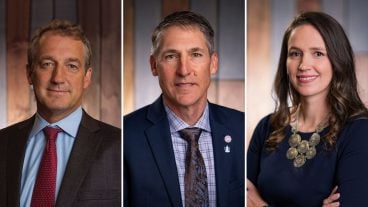
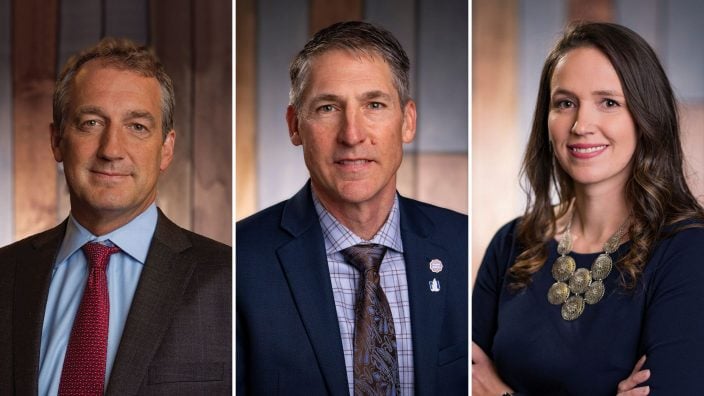
Bill Patterson, Cy Prettyman and Adele Flynn will continue to serve as officers for Ohio Farm Bureau Federation.
Read More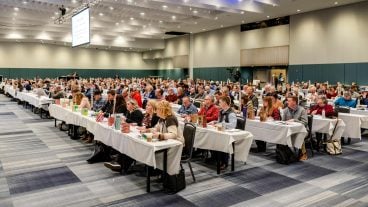

Delegates discussed many topics impacting agriculture including farmland preservation, local foods, and succession planning.
Read More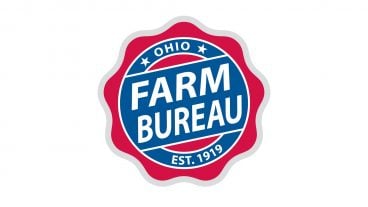
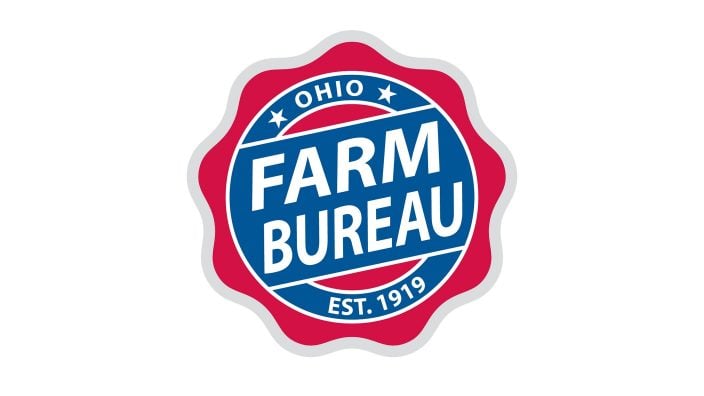
Twenty-six farmers govern the state’s largest farm and food organization.
Read More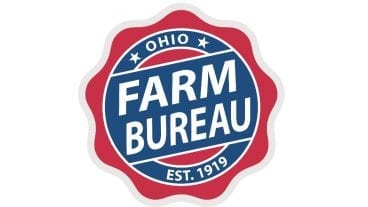
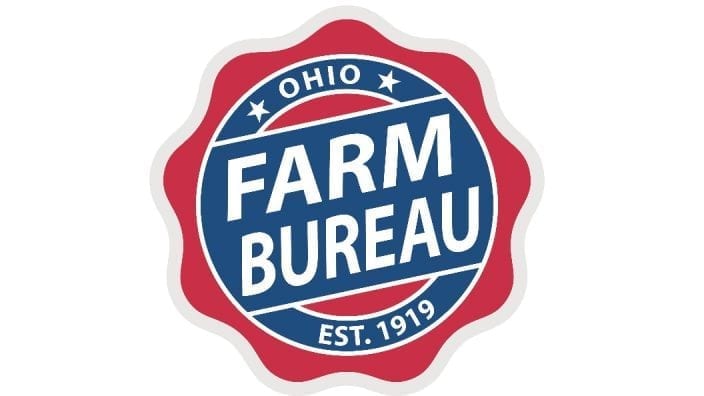
The 2025 recipients are Fred Cooke (posthumous) of Richland County, Marvin Dietsch of Williams County, Steven Knollman of Hamilton County and Michele Miller (posthumous) of Ottawa County.
Read More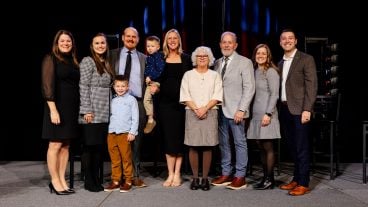
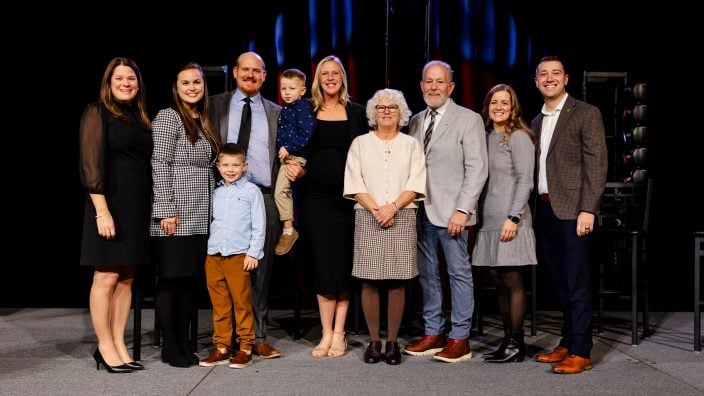
Nathan and Jill Parriman grow seasonal crops, including Christmas trees, pumpkins and cut flowers, providing U-cut experiences that invite customers to engage directly with agriculture.
Read More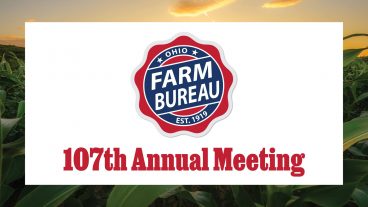
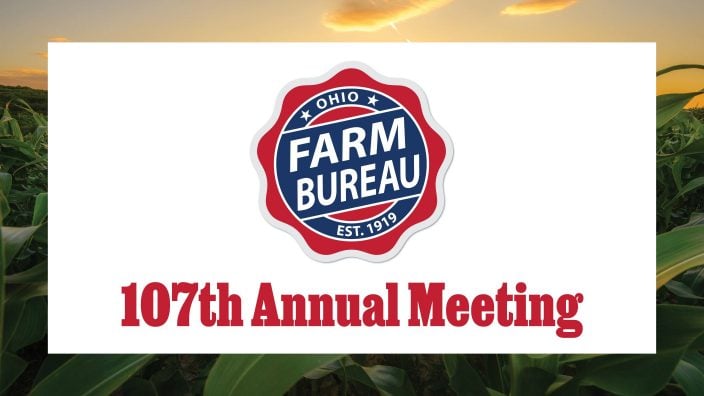
The 2025 Distinguished Service Award recipients are Craig Adams, Mike Townsley, and Kellogg Farms, Kurt Farms and Stateler Family Farms.
Read More

Ohio Farm Bureau Treasurer Adele Flynn participated in the meeting, representing Ohio farmers.
Read More

For Ohio and PJM region, the outlook is reassuring—ample reserves and strong planning should keep the power on.
Read More

The average price for a classic holiday feast for 10 in Ohio will cost $55.87.
Read More